Scholar Spotlight - Holly Toombs

Discover more Scholar Spotlights.
Holly Toombs, a Laidlaw Scholar at the University of Oxford, on how policy influences extra-curricular provision in the UK
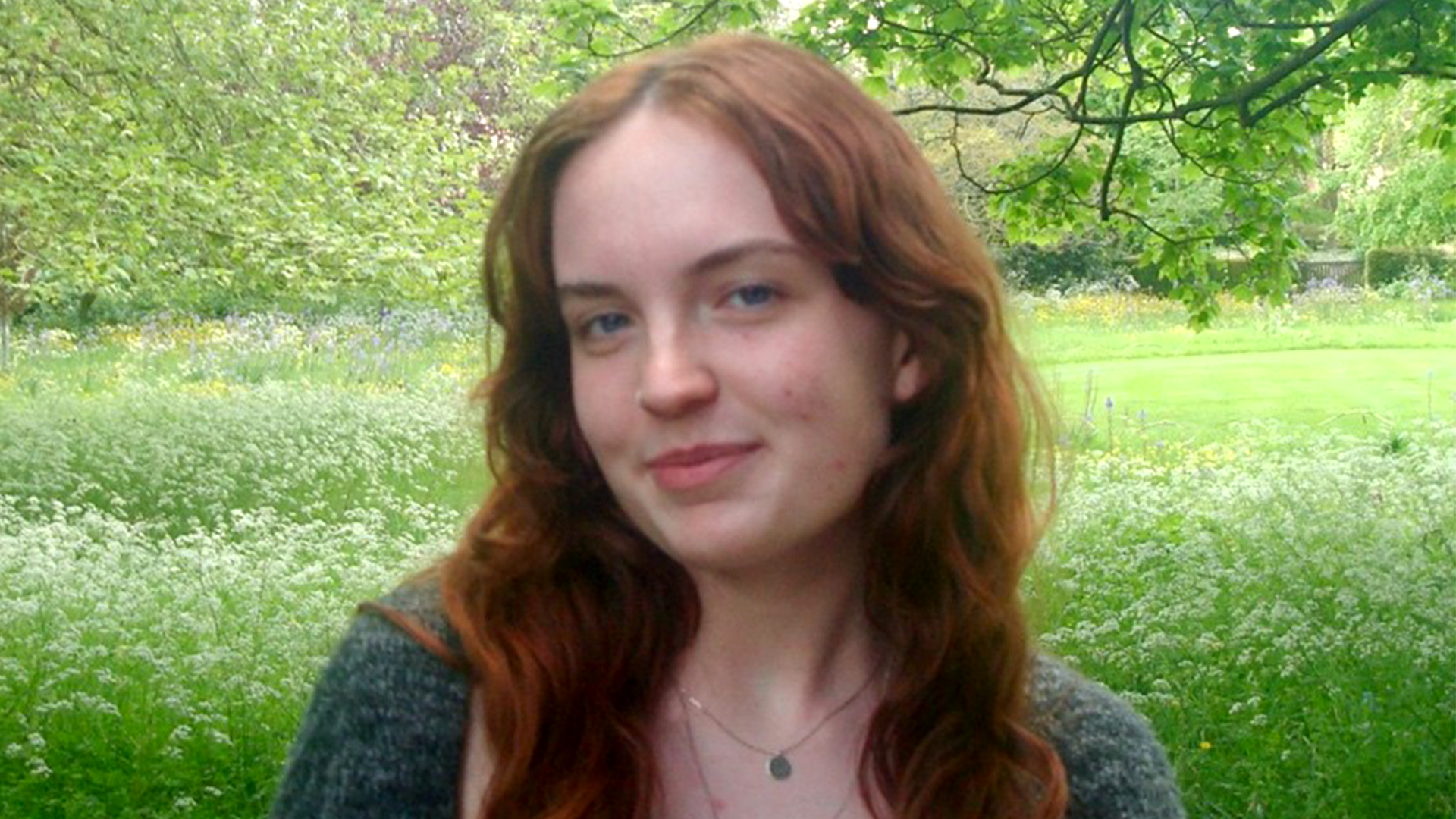
Research title:
From Policy to Practice: How Policy Influences Extra-Curricular Provision in the UK
How many extra-curriculars were on your personal statement or college applications? For a large proportion of UK students, they struggle to include even one.
Extra-curricular activities (ECAs) are hugely beneficial to children, not just to get into university, but for their social and educational development. There is a massive disparity across the UK in the extra-curricular opportunities available, and collectively, the Oxford Laidlaw cohort studied the barriers families face to accessing them.
My sub-team of 4 scholars investigated the role of current UK policy on ECAs. Most significantly, we found that there are no existing policies addressing ECAs, and there have been no attempts to create any. Even the criteria outlined by OFSTED, the UK education regulatory service, neglect to mention ECAs almost entirely, in their guidelines for 'Good' and 'Outstanding' schools. Through interviews with key stakeholders, and secondary literature reviews, we discovered a massive resultant gap in state-school funding for ECAs. Headteachers have no regulatory motivation to allocate funds to ECAs, so prioritise academic needs, which are more heavily scrutinised by the government, OFSTED and league tables. Bridging this gap is important for achieving SDG 4 (Quality Education) and SDG 10 (Reduced Inequalities).
As a result, we concluded that policy should be introduced to mandate schools to provide ECAs, to ensure their provision is given higher priority. We outlined some suggestions for this, such as the implementation of a national database of ECA provision, to make information around ECAs accessible to researchers, headteachers, and families alike.
The second cohort of Oxford Laidlaw scholars have spent the summer extending the foundations of our work into a longitudinal project, and I'm excited to see how this could result in real change, for the benefit of children across the UK!
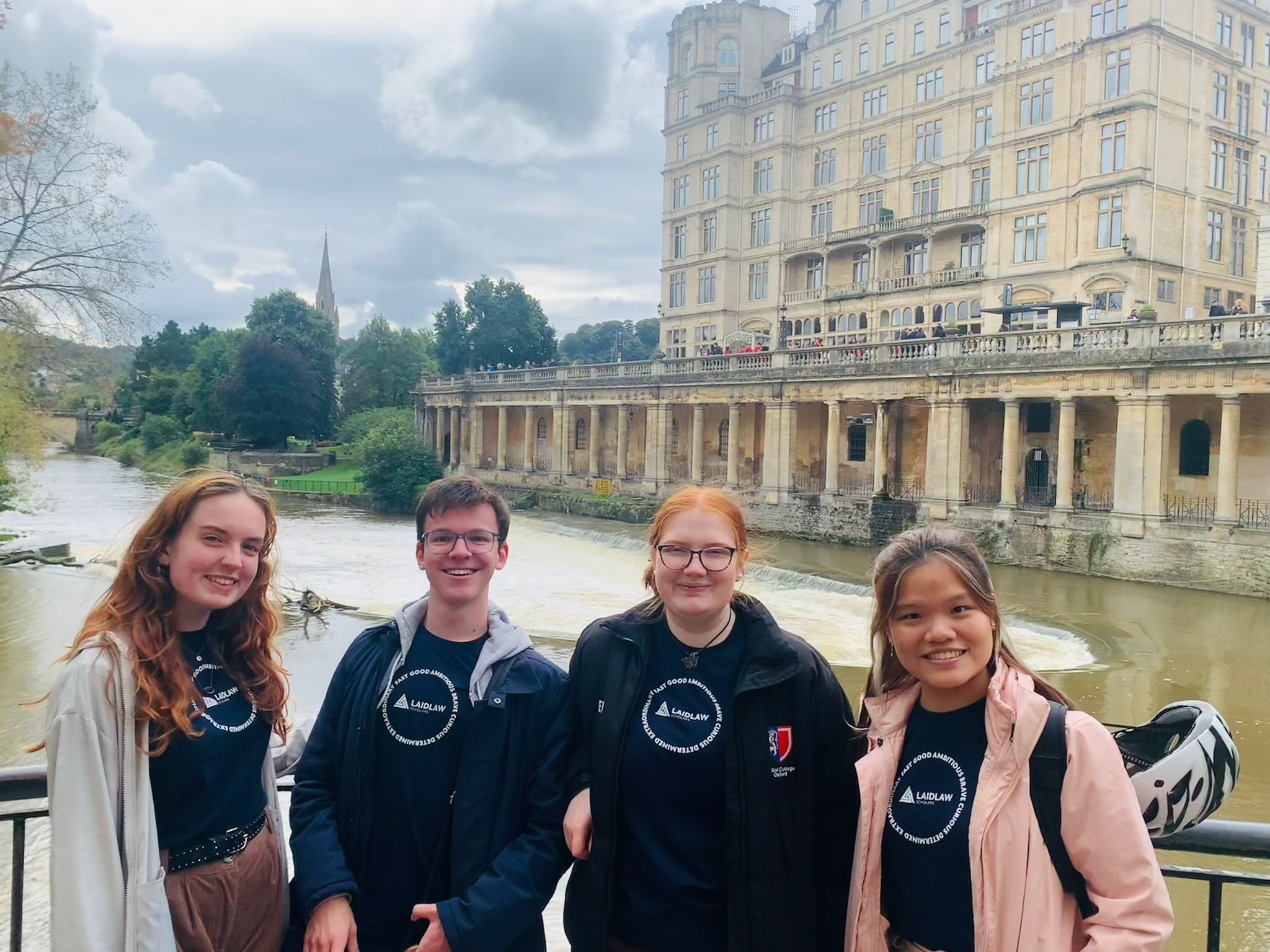
My research team and I in Bath for an interview with a post-doctoral researcher
Where did your passion for this research originate? How does your personal story feed into it?
As someone from a comprehensive state school in the North of England, the disparity in opportunities between socio-economic classes became particularly apparent from the beginning of my Oxford application. There's a widespread perception that to get an offer, you must have an extensive repertoire of awards, internships, and publications; and aptitude with instruments, sports, debating and chess. The anonymity of applications does little to mitigate the disparity in opportunities that occurs before applications begin, demonstrated by the fact that only one of the 45 colleges has a percentage of state-schooled students that matches the national average.
I was entirely unaware of this expectation until I began researching Oxford applications: hiring a tutor was unheard of; internships required connections; and I didn't even know that Olympiads were a thing. It felt like I was applying from an entirely different world than many other applicants. Yet, even I had enough support and resources to get an offer, and to believe Oxford was an option in the first place, which still isn't the case for many of my peers across the country. Many children's experience of extra-curriculars is watching a film or kicking around a football until their parents return from work, supervised by teachers who lack the training or pay to provide anything more substantial.
I appreciated this opportunity to represent these children, and to spearhead a step in the right direction to mandating more equal access to opportunities: not just to open their path to top universities, but to support their wellbeing and well-rounded development overall.
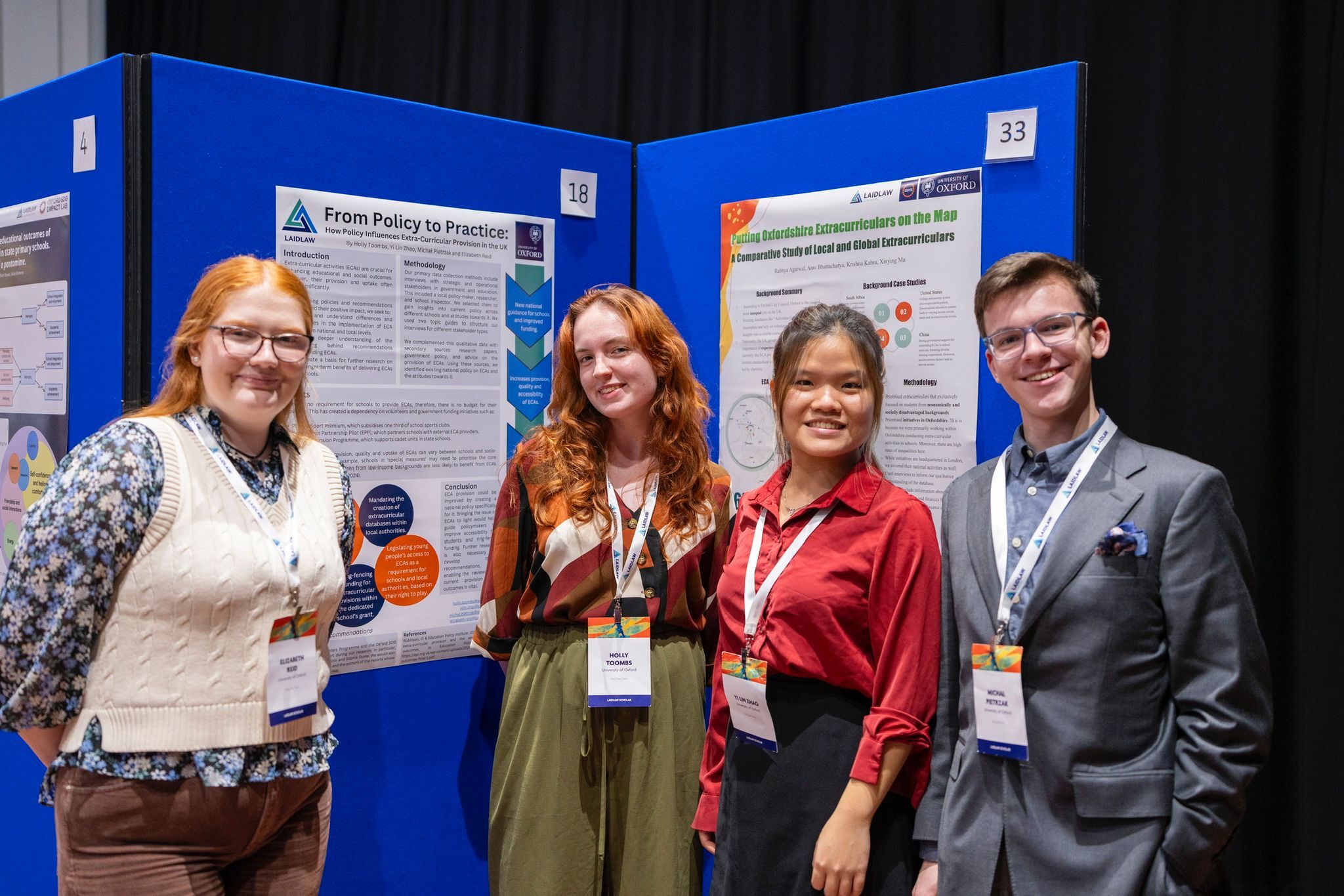
My research team and I with our poster at the Laidlaw conference
What is the most memorable moment from your Laidlaw scholarship experience so far?
My most memorable moment has to be taking part in a temazcal in Mexico, during my LiA experience! A temazcal is an ancient ritual, literally translated as ‘sweat lodge’, which was much more enjoyable than it sounds. We sat inside a small hut in complete darkness, with steaming stones placed in the centre, symbolising ‘abuelas’ or grandmothers, whom we asked for guidance and wisdom. It lasted for around an hour and a half, and was an intense but fascinating experience. It felt very cleansing and rejuvenating, encouraging me to introspect on my goals, intentions, and anxieties. It was an opportunity to connect with the Indigenous culture, and to reflect on everything I'd learned up to that point.
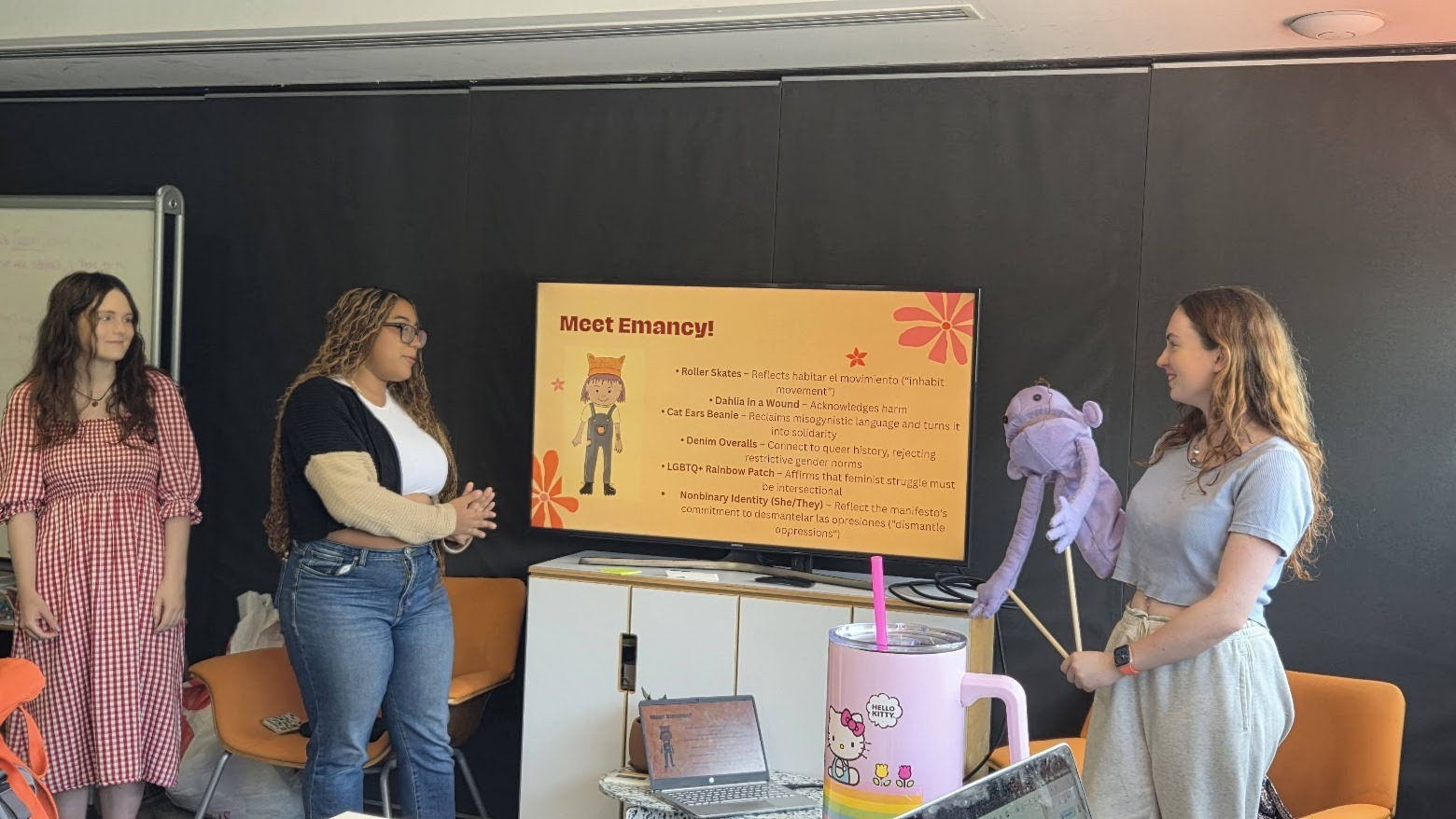
My LiA team and I practicing our end-of-project presentation, with the puppet we made, called Emancy!
What is the biggest challenge you came across in your research and leadership journeys so far, and what did you learn from it?
The biggest challenge I’ve faced so far, in both my leadership and research journeys, has been trusting my own judgements, intuitions and experience. I often struggle with feeling like I’m not qualified enough to be a leader, that someone else would do a better job, or with anxieties that I’ll 'get it wrong'. But I’ve often found that when one person is thinking this way, everyone else is also thinking the same about themselves, which leads to indecisiveness, uncertainty, and the whole team lacking in confidence with the direction their work is going.
Once I realised this, it became much easier to allow myself to speak up and to share ideas. Even when I knew my contributions weren't the best, they started conversations and created space for others to contribute something better. I’ve learnt that contributions don’t have to be perfect to be valuable, and that the best collaborative leadership comes from the intersections between everyone’s collective experience, rather than trying to second-guess what everyone else will say, and deciding a priori whether my own thoughts are worth contributing.
What does it mean for you to be a Laidlaw Scholar?
Being a Laidlaw Scholar is about learning, reflecting, and contributing to a space of global progress that is shared by so many incredible people. It's been an opportunity to consider the way in which I lead and contribute to the teams I work in, both through workshops and first-hand experience. I've loved speaking to Scholars across the world, and working with worldwide organisations to address huge global issues such as gender-based violence. But I've also really appreciated the opportunity to work locally, and address issues with socio-economic disparity within my community at home - there are opportunities to make positive change everywhere, that don't require flying halfway across the world. Being a Scholar is ultimately about the skills, competence and confidence that I can now apply to all the work I do in the future, which have boosted my ability to create long-term, effective change.
Which particular leaders inspire you the most and why?
A woman I have been inspired by for years is Greta Thunberg: I credit a large part of my dedication to activism and social action to her. Her initiative and drive stand out to me most - she sees issues in the world that needs fixing, and simply does something about it, without being held back by doubts, insecurities, or thoughts of 'no one else is doing it, why should it be me...?'. Her actions initiated a massive global movement in students like myself protesting for climate justice, and have contributed to a significant societal shift, even if climate change still isn't being taken seriously by those in power.
A good leader needs to lead by example, and it's clear that her morals consistently motivate everything she does. In my own leadership, I strive to act and make decisions in a way that aligns with my values, such as using sustainable and ethical practices; being culturally sensitive; and being supportive, inclusive, and fair. Greta has reminded me that it's only possible to remain blissfully apathetic as a result of privilege and luck, and so has inspired me to be intentional and active in addressing issues I observe.
Briefly describe a scene from the future you are striving to create.
I’m looking towards a future where access schemes, women’s safety measures, and even some forms of therapy are not present – because they’re not necessary. I envision a world in which the systemic barriers to education and security are lifted, allowing individuals from every background to have the opportunity to achieve their potential, and to feel safe existing in their own communities. NGOs could improve quality of life from a baseline of equality, enabling progression that isn't rooted in a cycle of systematic oppression and exploitation. Future generations of Laidlaw Scholars would be able to learn from the achievements of past leaders, not just from their mistakes.
This world feels far off and massively idealistic, but I believe in the work of the current and incoming Scholars, and am confident that we're taking steps in the right direction. ❤️
Quick-fire Questions
📺 Currently Binging:
Brooklyn Nine-Nine (for the fourth time...!)
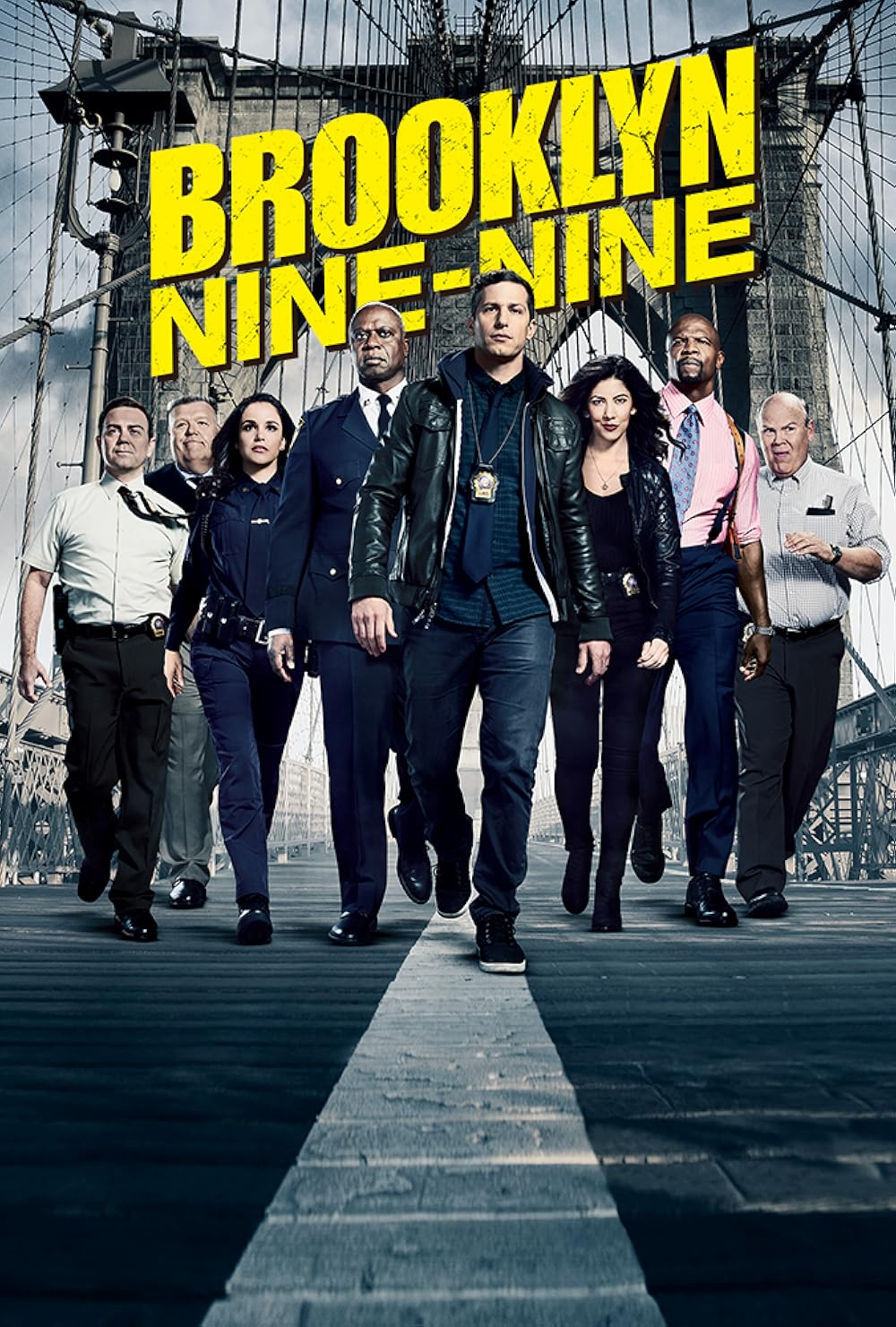
📚 My top book recommendation:
The Joyful Environmentalist: How to Practise Without Preaching - Isabel Losada
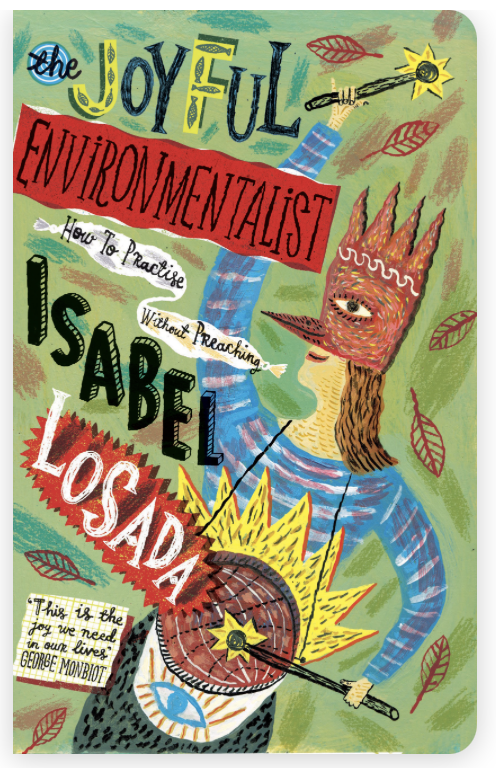
🎶 My anthem:
Paris Paloma - As good a reason
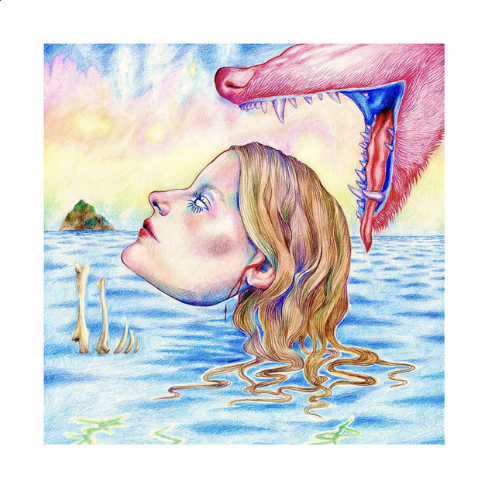
🎶 Current Podcast Obsession:
Hubermann Lab - they discuss some really interesting topics about the brain, that are academically interesting but also provide good advice on how to optimise your brain function and mental health, from a biological perspective!
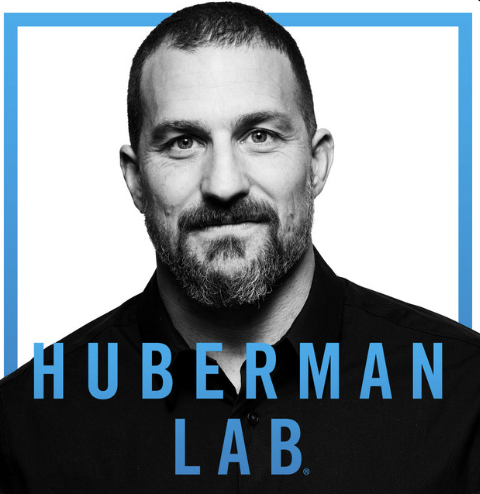
🌈 Something that made me feel joy recently:
My morning bubble tea on the way to work 🧋
If you want to learn more about Holly's work, explore her research here and follow her on Linkedin. Holly is a Laidlaw Undergraduate Leadership and Research Scholar at @Oxford University . Become a Laidlaw Scholar to conduct a research project of your choice, develop your leadership skills, and join a global community of changemakers from world-leading universities.
Find out more about the Laidlaw Scholars Undergraduate Leadership and Research Programme.
🔦 Discover more Scholar Spotlights:
⚡️ Tito Mafikuyomi, a Laidlaw Scholar at the University of Toronto, explores barriers to healthcare access for immigrant women.
⚡️ Jing Ma, a Laidlaw Scholar at UCL, explores the influences between the evolution of legal frameworks and civil society in Singapore.
⚡️ Eliana Amoh, a Laidlaw Scholar at Cornell University, explores the intersection of education, labour, and migration in and out of Ghana.
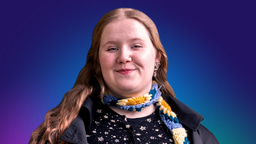
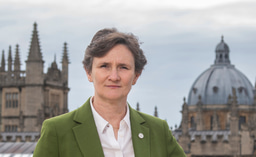
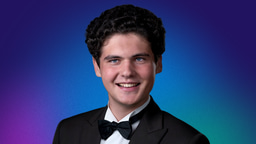
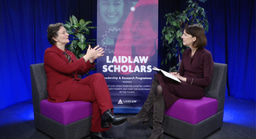

Please sign in
If you are a registered user on Laidlaw Scholars Network, please sign in
Holly, Thank you for sharing your journey! Watching your growth as a leader in the lab has brought so much nachas (pride and joy). I am excited to follow your journey as you continue to grow, develop and build the beautiful world you envision.